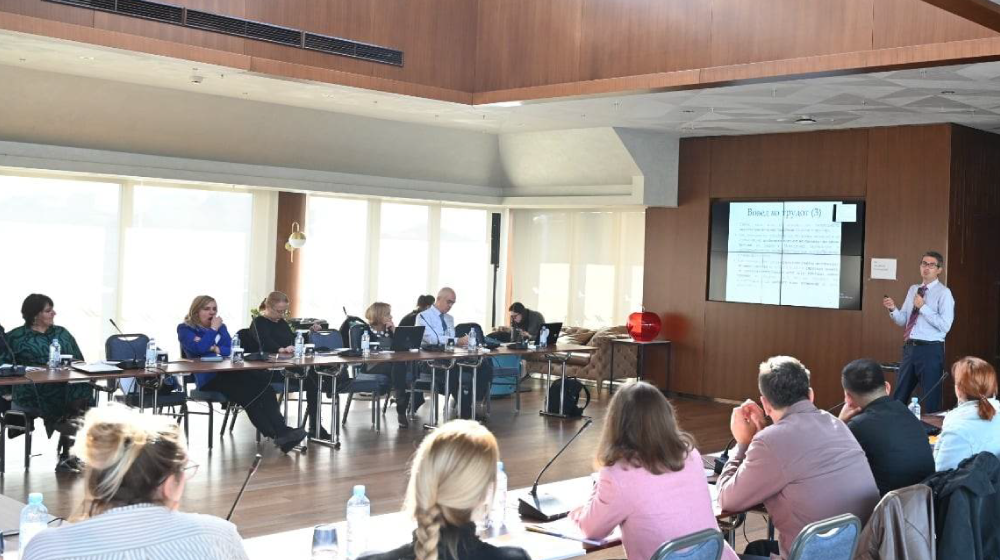Skopje, October 19, 2022 – Migration trends, inflow and measuring remittances in North Macedonia, including estimates of the inflow of personal remittances, informal sources, as well as specifics and weaknesses of state statistics on migration, were some of the topics of the two-day workshop that began today in Skopje, organized by the United Nations Population Fund – UNFPA in North Macedonia.
At the event, which was attended by about 20 representatives of various state institutions, including the National Bank, the State Statistics Office, the Ministry of Labor and Social Policy, the Bureau for Regional Development and the Secretariat for European Affairs, the methodology for researching personal remittances when using available statistical data, as well as data from the 2021 Census, were considered.
Within the project, in the following three months, a total of six trainings for remittances and building capacities on the topic “Introduction to big data and application of big data analytics for migration – Big Data” will be held.

The “big” data trainings represent an innovative approach to data acquisition and analysis and create an opportunity to advance the development of evidence-based migration policies and instruments, improve systemic data collection and analysis, and a more effective inter-institutional data exchange, as well as public perceptions and narratives regarding immigrants and refugees.
They refer to the use of new, innovative and alternative data sources – Big Data as a support to policy makers for efficient management of demographic processes and migrations in order to support the development of evidence-based migration policies and instruments, to advance the systemic data collection and analysis, and to improve systemic data collection and analysis, and a more effective inter-institutional data exchange, as well as public perceptions and narratives regarding immigrants and refugees.
Big Data is large amounts of data that are automatically generated in large databases, such as databases of mobile phone operators, energy companies, social networks and other internet-based platforms.
The workshops are part of the project “Evidence-based migration policy planning and discourse”, supported by the United Nations Migration Multi-Partner Trust Fund, implemented by three UN agencies – UNFPA, IOM and UNHCR.


